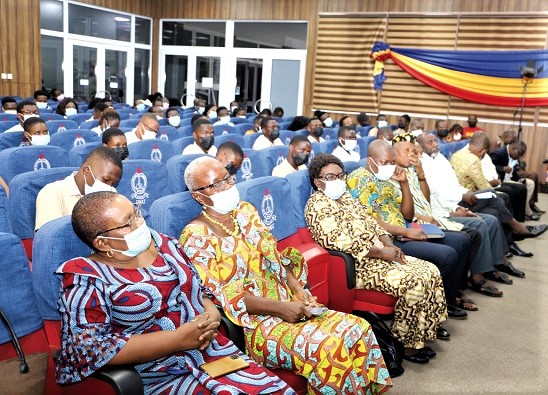
Bridge gap between well, less-endowed schools- Prof. Oduro
Government policies in the educational sector should put a focus on bridging the gap between the less endowed schools and the well-endowed schools.
The Dean of the University of Cape Coast School of Educational Development and Outreach, Professor George Kweku Toku Oduro, who made the call, therefore, stressed the need for the rules governing the distribution of logistics, equipment and access to basic teaching and learning materials at all levels to be done equitably irrespective of the geographical location of a school.
Talk
Prof. Oduro was delivering a talk on the topic, “Harmonising school rules for inclusive and equitable education" at the 69th Anniversary and Founders’ Day lecture of the Keta Senior High School (KETASCO) in Accra last Monday.
The lecture was on the theme “Education for Sustainable Development".
Prof. Oduro, who was the guest speaker, observed that “the imbalances between rural less endowed schools and urban endowed schools in terms of accessing basic science equipment, library books, subject specific teachers, timely and adequate supply of textbooks etc., undermined the equity imperative in the Sustainable Development Goal four".

On harmonisation of school rules, Prof. Oduro, who is also the immediate-past Pro Vice-Chancellor of the University of Cape Coast, stated that “harmonisation of school rules does not and will not guarantee inclusiveness and equity for Ghana’s sustainable development”.
He explained that school-specific rules must exist alongside macro level rules that were generic rules formulated by the Ghana Education Service to guide the operation of schools.
The Principal of the Ghana International School (GIS) in Accra, Dr Mrs Mary Ashun, observed that school rules must be communicated well, consistently and visibly in order to remove any ambiguity in the minds of students, teachers and parents.
She said the rules must also be reviewed regularly to ensure that it made the desired impact.
Inclusiveness
The Country Director of Exam Ethics Marshals International, a non-governmental organisation, Reverend Dr Kofi Ashiboe-Mensah, stated that in spite of the numerous interventions and existing laws in the country on how best to ensure inclusiveness and equity in education delivery, much has not been achieved over the years.
“We have fine laws but how to implement them has been the bane of education; every child no matter his or her religious, geographical, family background or gender needs to be given the requisite materials and enabling environment to be able to perform well at school," Rev Dr Ashiboe-Mensah said.
Residual powers
A Legal Expert in business, debt recovery and real estate with the Amenuvor&Associates, a private law firm in Accra, Mr Hope Agboado, called for residual powers to be given to school management and board to formulate rules and regulations that were peculiar to every school environment and locality.
He, however, noted that the formulation of such rules must be done within the confines of the 1992 Constitution.
Mr Agboado further stated that efforts must be made to ensure that there is equity in granting autonomy to schools in the application of their respective rules and regulations no matter their level of endowment or popularity.
